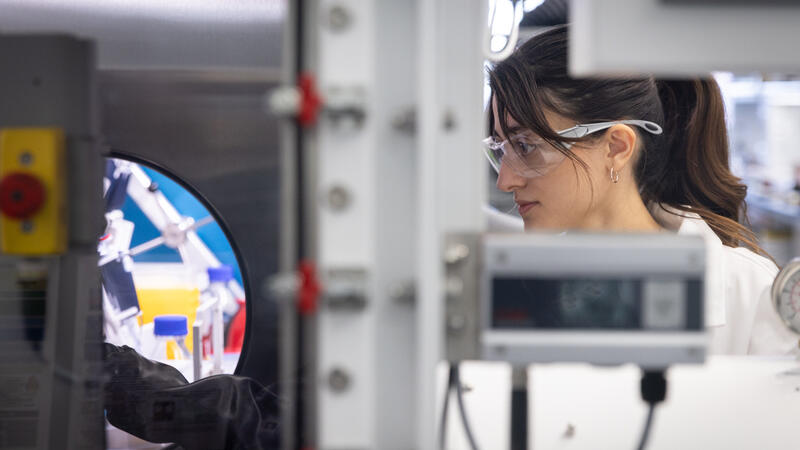News
Autonomous lab accelerates discoveries to harness power of microbes
As our world faces massive shortages of N95 masks, there is growing concern for the safety of healthcare workers who rely on these specialized masks and other personal protective equipment (PPE) to treat COVID-19 patients.
Replacing fossil fuels with electricity or biofuels does not mean reliance on gas and oil will go away overnight. In addition to transportation fuels, petroleum is refined into hundreds of petrochemicals used in everything from plastics and pharmaceuticals to carpets and fertilizers, and currently there are no easy ways to produce most of these chemicals without using oil.
Someday soon, oil refineries may trade in crude oil for agricultural waste like corn stalks or renewable plants like switchgrass in order to produce sustainable biofuels. But we’re not there quite yet; converting those products into usable chemicals on a large scale requires efficient catalytic reactions, which researchers are still hunting for.
Transportation produces a sizable amount of U.S. greenhouse gas emissions, largely by using petroleum to power internal combustion engines. Other alternatives – such as using cellulosic biomass like grasses to produce drop-in fuels or electricity – could avoid petroleum use altogether and move atmospheric carbon dioxide to soil and geologic storage.
The American Association for the Advancement of Science, or AAAS, has awarded the distinction of Fellow to six MSU faculty members this year, including GLBRC researchers Eric Hegg and Cheryl Kerfeld. These individuals have been elevated to this rank because of their efforts toward advancing science applications that are deemed scientifically or socially distinguished.
Cool morning dew sparkled off an army of deep green blades; somewhere close an abrupt rustle originated. The green sea parted, a young fawn appeared, and the world became still for only a moment. Experiencing a research summer at the W.K. Kellogg Biological Station isn’t only about understanding the natural world but appreciating it as well.
Dr. Alexandra Kravchenko, Michigan State University professor in the Department of Plant, Soil and Microbial Sciences, along with several of her colleagues, discovered a new mechanism determining how carbon is stored in soils.





